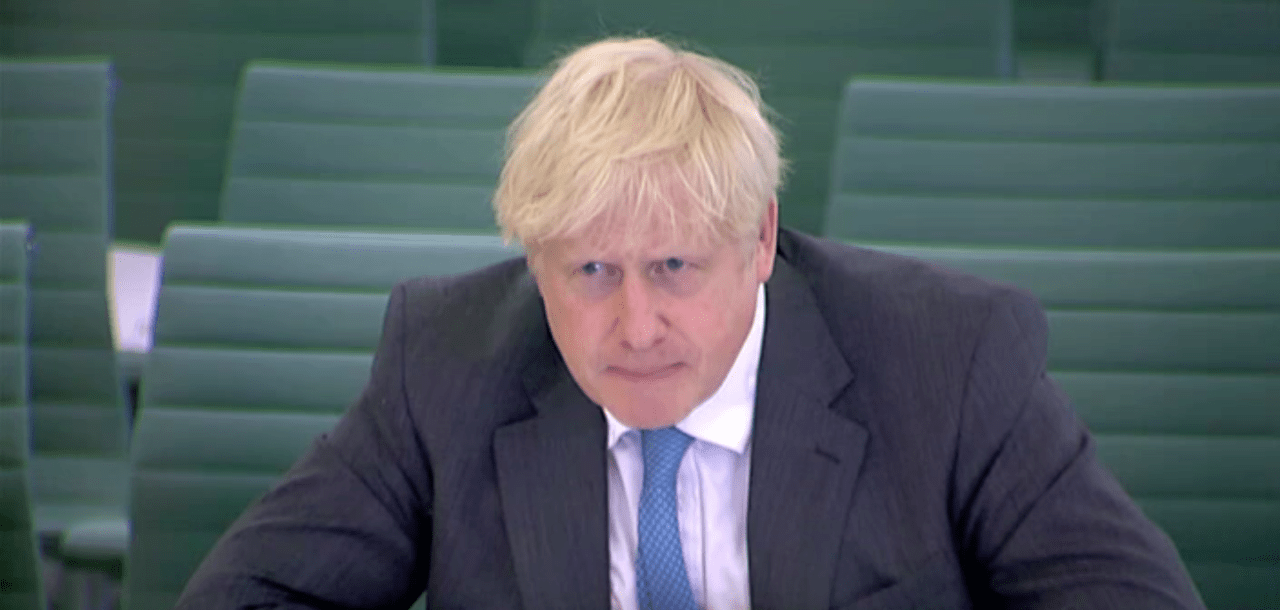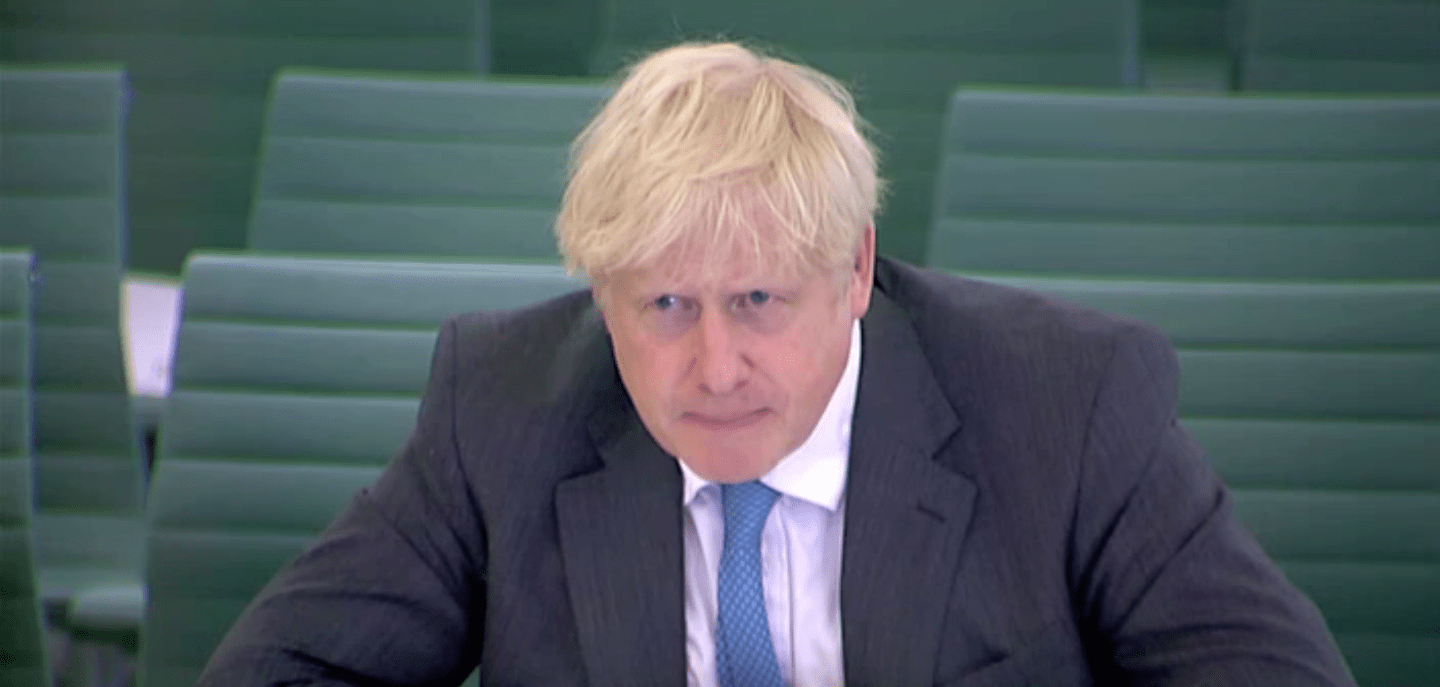As the government comes under fire over its Brexit tactics, testing capacity and coronavirus guidelines, Boris Johnson was this afternoon summoned before the liaison committee to answer questions on all of the above. Although dialogue remained civil between the PM and the panel – made up of select committee chairs – there were signs that Johnson might prefer to be somewhere else, at one point rolling his eyes. Here are the five main takeaways from the session:
1. The EU is not negotiating in good faith
Earlier today, Northern Ireland Secretary Brandon Lewis suggested the EU is negotiating with the UK in good faith. However, it seems the Prime Minister takes a different view. Asked by Labour’s Hilary Benn, Johnson replied: ‘I don’t believe they are.’
He did add a slight disclaimer by adding ‘perhaps they will prove my suspicions wrong’. As for the controversial Internal Market Bill, Johnson appeared to suggest it was critical to the UK’s negotiating position – saying it needed to stay until the issue has been resolved.
2. The UK ‘does not have enough testing capacity’
At PMQ’s today, Johnson gave a passionate defence of the government’s coronavirus testing programme – suggesting it compares well internationally with other country’s capacity. However, a less encouraging assessment came at the hearing later in the afternoon. Asked directly by Greg Clark whether the UK has enough testing capacity available, Johnson replied that the ‘short answer is no’.
He elaborated that ‘in an ideal world [he] would like to test absolutely everybody that wants a test immediately’. However, demand had ‘rapidly accelerated’ in the past fortnight amid rising Covid cases – highlighting that testing capacity has gone up by 10 per cent in the past two weeks. Despite the current difficulties, he remains hopeful the government could reach 500,000 tests a day by the end of October.
3. A second national lockdown ‘would be disastrous’
Although Boris Johnson has previously described the threat of a second national lockdown as akin to the nuclear deterrent, internal discussions over measures such as a 10 p.m. curfew have left some in government wondering whether it could be on the cards. In response to a question from Conservative MP Julian Knight, Johnson spoke of the economic devastation such a move would create – saying he doubts that the consequences of a second national shutdown ‘would be anything but disastrous’ for the economy. However, he did not go so far as to completely rule one out.
4. US democrats will come around on Brexit trade plans
Since the row over the government’s plan to rewrite parts of the Withdrawal Agreement, MPs, peers and politicians around the world have been quick to voice their disapproval. One intervention that has been heralded as particularly tricky was US House of Representatives Speaker Nancy Pelosi’s. The senior Democrat suggested a Joe Biden government would not work with the UK on Brexit trade talks if reports were true.
Asked by the SNP’s Angus MacNeil whether the loss of a US trade deal was a ‘price worth paying’, Johnson voiced optimism that the US side would view things differently in time: ‘I think when they see what we are trying to do, they will share our ambition.’
5. The UK is ‘not in a position’ to describe Uyghur persecution as genocide
When it came to foreign policy, Johnson was asked by Conservative MP Tom Tugendhat whether the treatment of Uyghur Muslims by the Chinese state in Xinjiang amounted to genocide. Johnson stopped short of going that far. He said that genocide is an ‘important term in international law’ and he was not convinced that it yet applied to this suggestion. He did say, however, that he found their treatment ‘objectionable’.
The PM was also asked whether the government would still send ministers and members of the royal family to the Chinese Winter Olympics. Johnson responded that the matter would be reviewed ‘as and when’ a decision needed to be made. However, he added that ‘generally speaking’ it was important to protect international sporting events and members of the royal family from ‘political ramifications’.








Comments